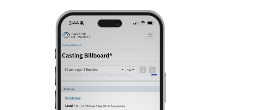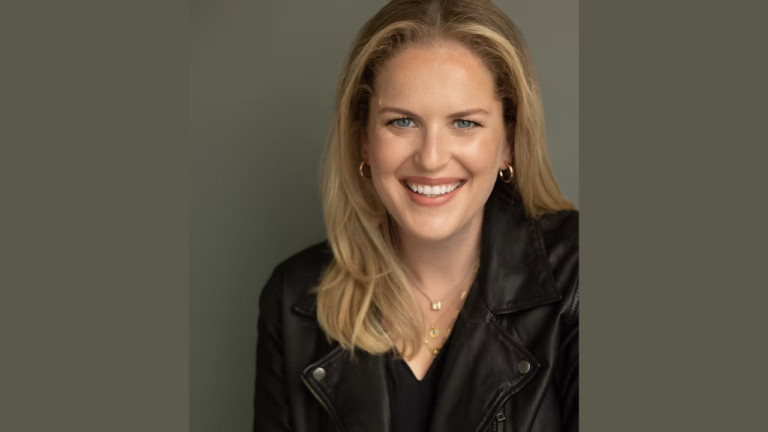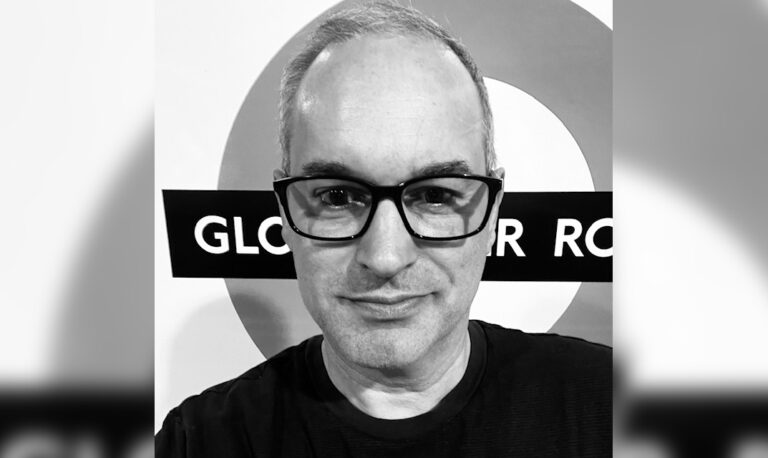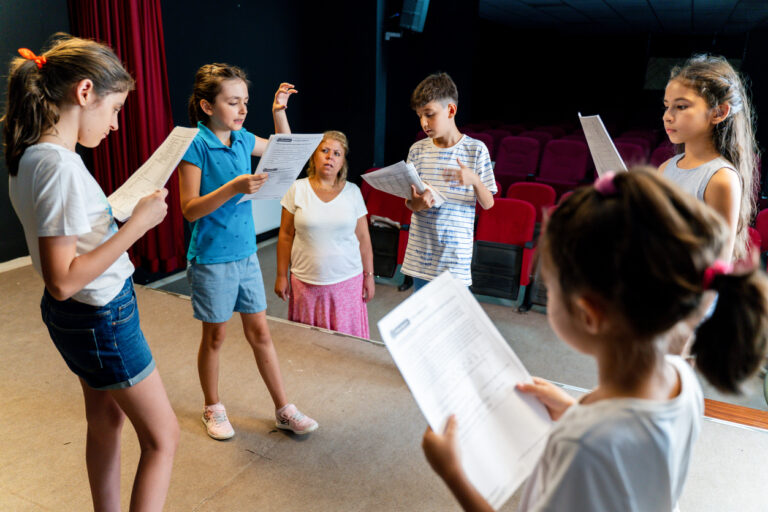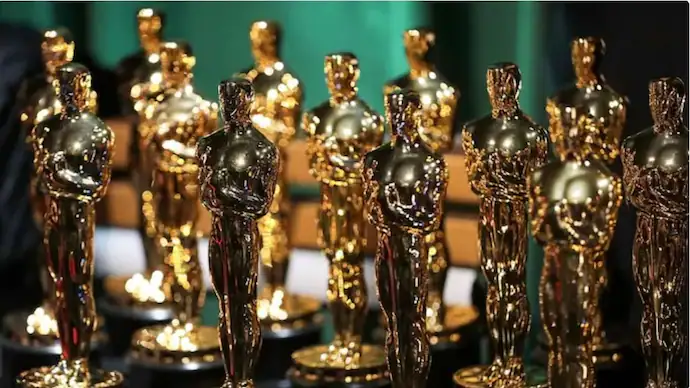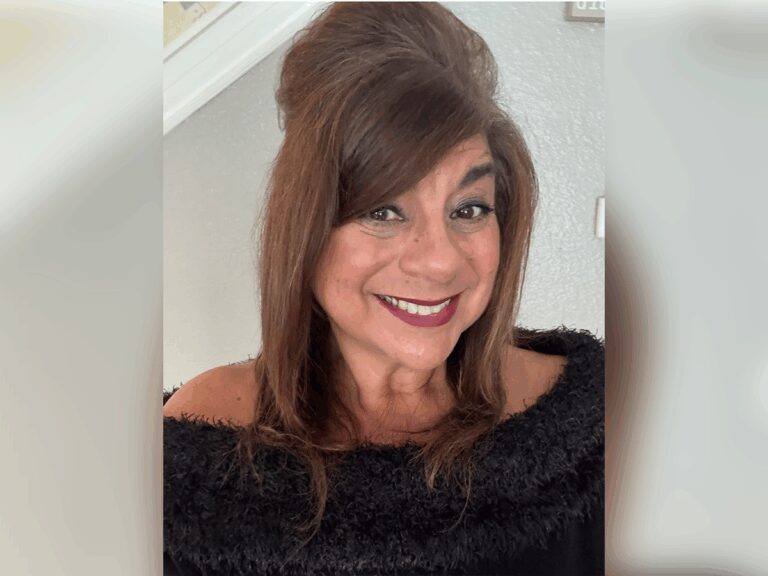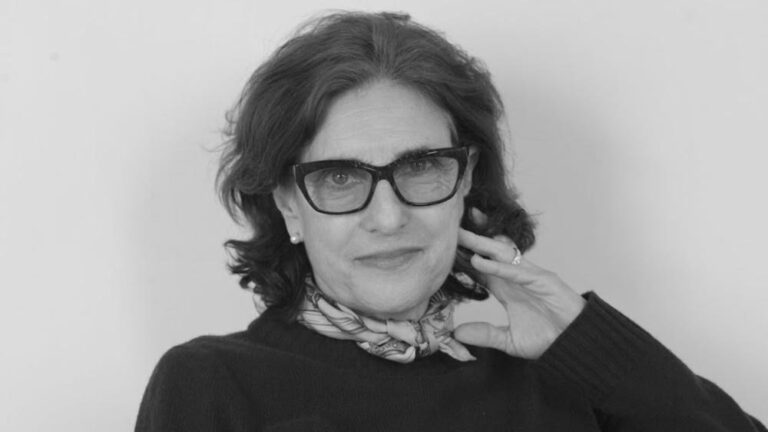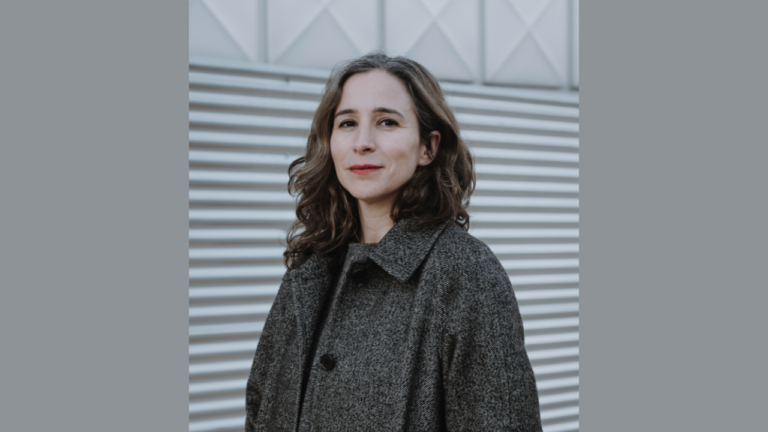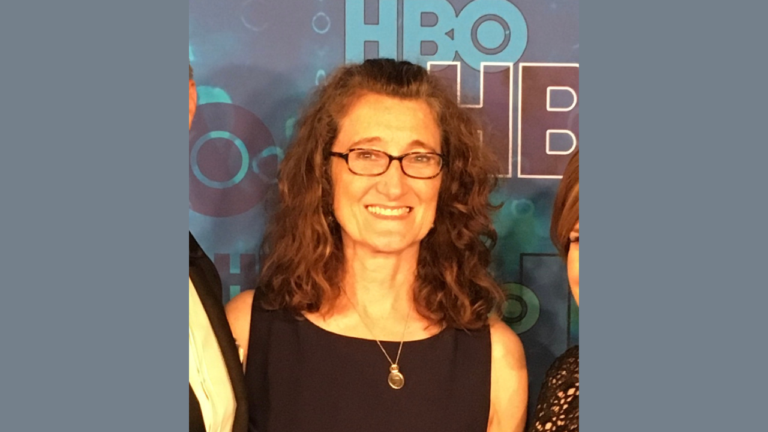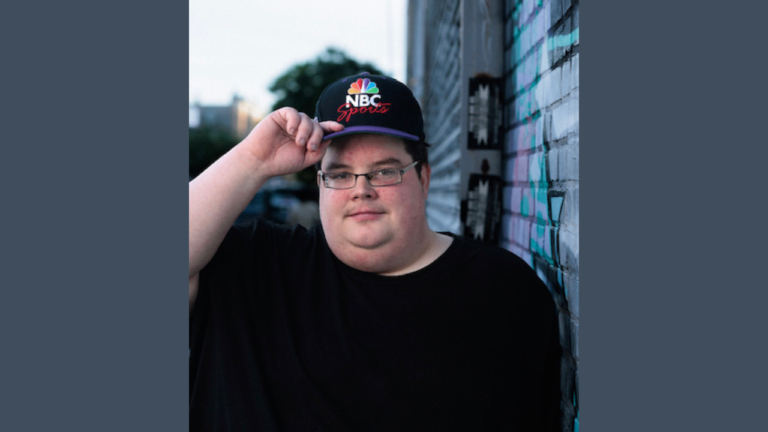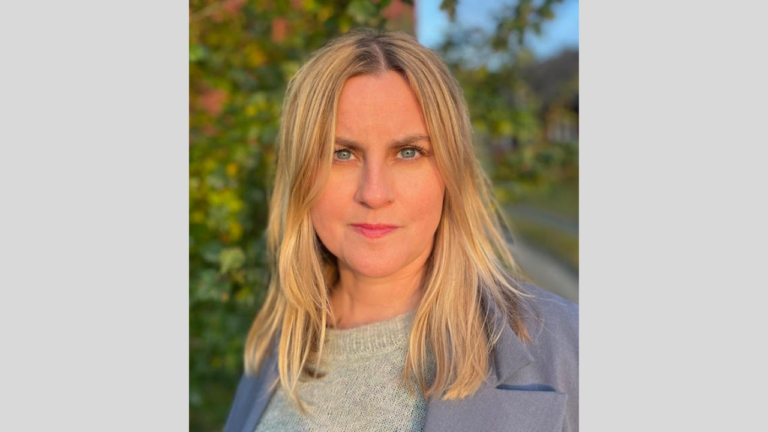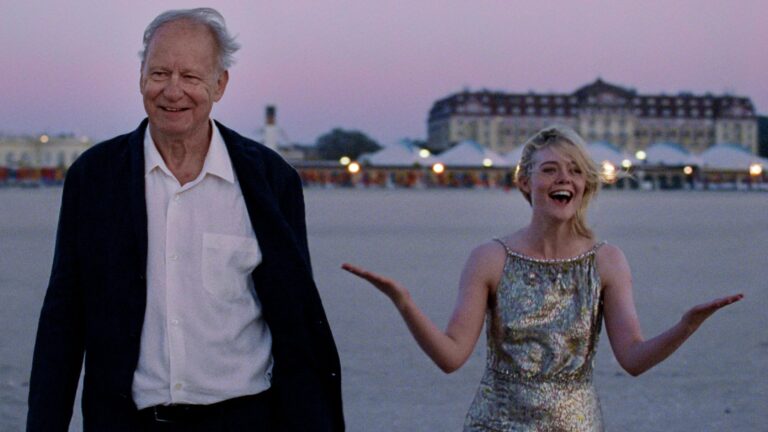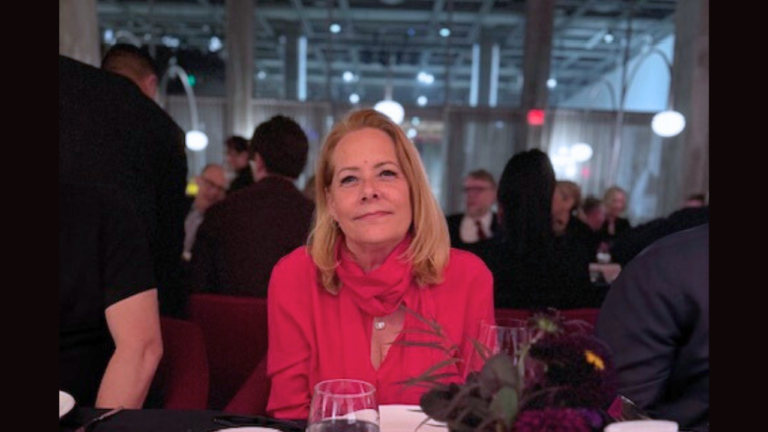You probably know Ross Marquand from his seven seasons on The Walking Dead, or from any number of films and TV shows where his considerable voice talents were on display. These include X-Men ’97, in which he voices Professor Charles Xavier, and Invincible, in which he voices several roles, including Rudy Connors and The Immortal.
He’s also a talented impressionist, earning a job with the Marvel Cinematic Universe because of it. If you saw Avengers: Endgame, for instance, that wasn’t Hugo Weaving’s voice as the Red Skull, it was Marquand’s.
Now, the actor is doing his first work in front of the camera in a few years, starring in the indie sci-fi drama Descendent. In it, Marquand plays Sean, a troubled LA school guard, haunted by family tragedy, who experiences strange visions after a mysterious light appears in the sky. As his wife’s due date approaches, he races to face his demons before his growing obsession consumes him.
The film hits theaters for a limited engagement on August 8, before its day-and-date release one week later on August 15. He spoke to us from LA.
Insights From Ross Marquand
- Actors should seek projects that emotionally and mentally challenge them, whether in lead or supporting roles, to grow their craft.
- Building strong professional relationships can lead to future opportunities, as seen with Marquand reconnecting with a past collaborator for a major role.
- Versatility, such as developing voiceover and impression skills, can open unexpected doors and create steady work in different entertainment sectors.
How did you come on board for this project? What was it about this film that spoke to you?
Well, producer David Lawson and I had worked together almost 10 years ago on a short film, and we knew from that experience that we wanted to work together again. Once they took on this project, David was sweet enough to think of me for it. I read it in one sitting and just absolutely loved the character and the journey of this couple.
I think any expecting parents, especially first-time parents, are going to go through a emotional journey [where they see what their lives] will look like and how their lives will change. [They also need to figure out] how they can provide financially, but also emotionally, and be the best parents possible.
I think this movie is a giant allegory for that. It is two people who are very much in love with each other who are struggling to find the right ways and the right tools to be there for each other.
You spent seven seasons on The Walking Dead, but this felt like the biggest thing that you’ve done. Certainly, I think this is the first time you’re carrying a film by yourself. That must have been a nice change to be number one on the call sheet.
It’s a nice change, but it’s also, of course, a lot of pressure. Indie filmmaking is not for the faint of heart. We were working five or six days a week on average, 12 to 15 hours a day and your life has to get put on hold during that time.
For those six, seven weeks that we were filming, I was just all about Sean and diving into his psyche. I’m so grateful for the experience and for the team for taking a chance on me. Because, like you said, I’ve been known as this character for eight years in The Walking Dead, but this was the role that I think stretched me the most as an actor in my entire career.
When you’re that immersed in a role, are you able to walk away from it? How much of Sean stays with you?
I was able to walk away from it eventually, but there were several months after we wrapped where I was still having crazy dreams. Also, I have chronic insomnia to begin with, so that was kind of compounded.
The lack of sleep that I had on the film worked well for Sean because you have this hollowed-out look to him, and that was certainly not intentional, but it worked very well for the character, I think.
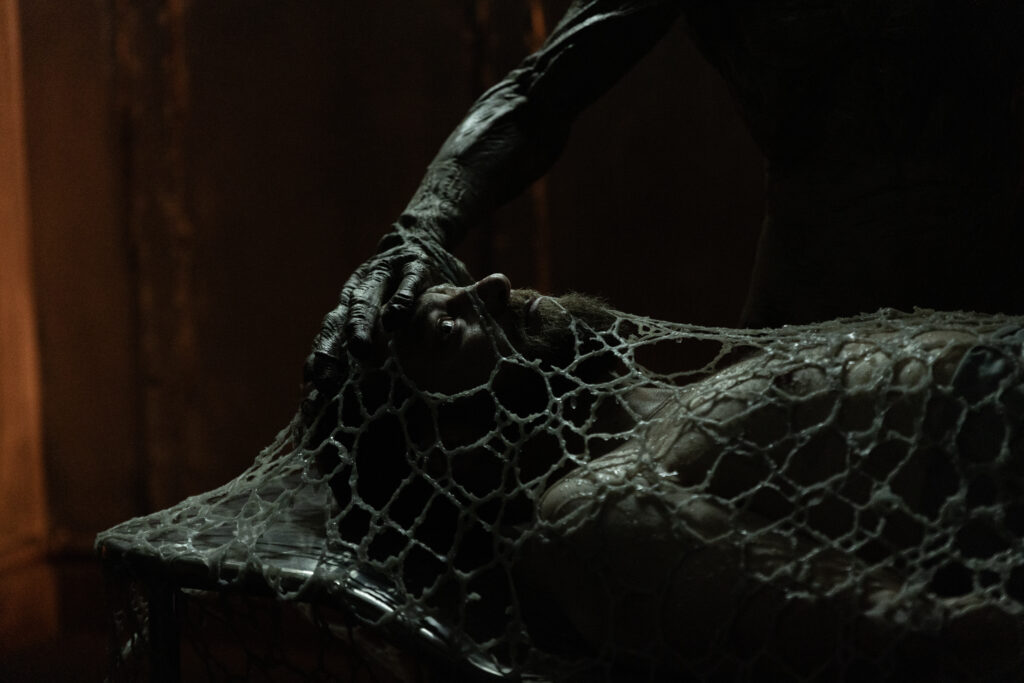
As an actor, when you do something like this, carrying a film by yourself, does it cross your mind that you’d like to do it again?
I’m proud of the work that everyone did on this. I think for me, I only want to work on roles and projects that excite me, and titillate me emotionally and mentally, whether it’s the lead of a film, carrying the movie, or playing a small bit part.
Some of my favorite actors shine the most when they’re playing smaller supporting roles. I’m open to everything in between. I just like fun roles that stretch me as an actor, and this certainly did that.
Speaking of that, I would think that the incredible voiceover career you’ve built falls under that category. How did you end up doing so much work for Marvel?
They reached out to Hugo Weaving, who played Red Skull initially in Captain America: The First Avenger, and they, for whatever reason, couldn’t come to an agreement.
In the 11th hour, with only a month left of filming both of those Avengers movies, they reached out to my manager and asked if I could do an impression of him. I said, “Like Agent Smith, Hugo Weaving? What are we talking about?”
He’s Australian, but he rarely ever plays an Aussie. So I said, “Which flavor of Hugo?” They said, “Well, we can’t say what it is, but it’s a German Hugo Weaving.” I very quickly figured out they meant Red Skull, and it kind of just went from there.
We did both movies, Avengers: Infinity War and Endgame, in one day, and that was it. That was November 2017, and ever since then, I’ve been kind of the go-to pinch hitter for Marvel. Whenever they can’t get whoever originally did the role, whether that’s Hugo Weaving, James Spader or Cedric Smith, they’ll call me and say, “Hey, can you do this?” That’s kind of how it happened.
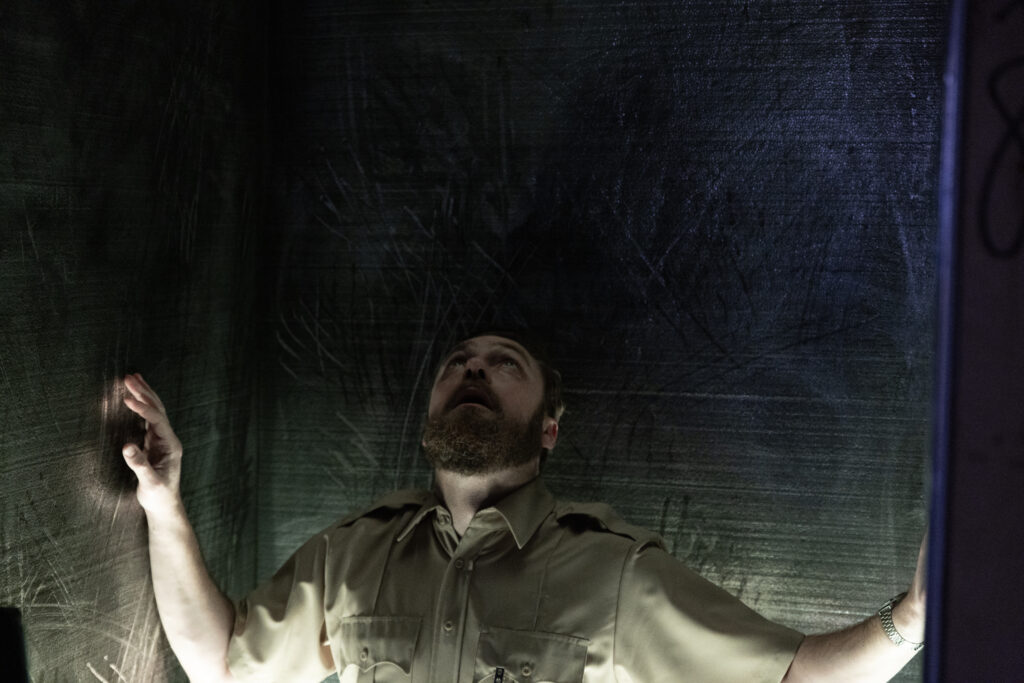
What kind of mark does a film like this leave on you, with its themes of impending fatherhood and familial legacy, plus the heavy material the film deals with?
I have a godson whom I’m very much involved in raising. Once I started filming The Walking Dead, I was gone off and on for eight years, but I still feel the enormous weight of wanting to be a good father figure for him, a good role model, wanting to show up for him when he’s going through hard times, and be there when those hard life questions come up for him. Even though he’s not my literal son, I do consider him my son.
It’s a terrifying thing to bring a life into this world, and not just for physical reasons, but also, your whole life will change, and anyone who says otherwise is kidding themselves. I think that’s why this movie appealed to me most — it was that even though I’ve been helping my friend, to some degree, raise her kid. I knew that the sheer anxiety and worry that came from that alone was enough for me to connect with this character. I hope that’s what people take away from this.
On the surface, it’s an alien abductee movie, and I hope people are blown away by those elements as well, but ultimately, it’s a movie about parenthood and relationships.
What’s next for you?
X-Men ’97 season 2, Invincible season 4 and another project that I’m very excited about, but I can’t talk about.
Are you getting back in front of the camera again, rather than just being in the voiceover booth?
Yeah, I’ve been doing a lot of on-camera stuff recently, but that’s, unfortunately, the secret project that this is. (Laughs) I can’t talk about it, but this is the way of the world.
Final Takeaways
Ross Marquand’s journey shows that acting is as much about versatility and relationships as it is about talent. Here are some notes regarding his approach to building a diverse career and staying open to different roles.
- Focus on roles that emotionally and mentally challenge you, not just big parts.
- Keep strong connections with past collaborators—they can lead to new projects.
- Develop unique skills like impressions or voice work to stand out and create more opportunities.
- Be prepared to commit fully to demanding projects, even if it means putting your life on hold temporarily.
- Stay open to both lead and supporting roles; growth happens in all kinds of parts.
You may also like:
